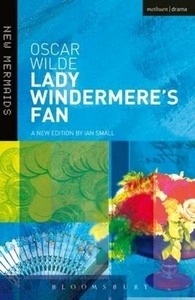Lady Windermere's Fan

Editorial A & C Black
Colección New Mermaids, Número 0
Fecha de edición diciembre 2002
Idioma inglés
EAN 9780713666670
102 páginas
Libro
encuadernado en tapa blanda
Resumen del libro
"The Sunday Times" reported that on the first night of "Lady Windermere's Fan" (1892), Wilde appeared on stage after the final curtain call and told the audience how pleased he was that they evidently liked the piece as much as he did himself. The play brought him wealth and cemented his reputation for brilliant wit and devil-may-care conduct. It dramatises middle-class Victorian hypocrisy while arguing that one does well to keep a nice balance between honesty and concealment.
Lady Windermere, suspecting her husband to have an affair with the experienced Mrs Erlynne, decides to leave him for the debonair Lord Darlington. In circumstances highly compromising for both, Mrs Erlynne sacrifices her reputation for Lady Windermere - an act of maternal love, for it turns out that she is Lady Windermere's mother and has been blackmailing Windermere to keep quiet about it. Lady Windermere remains innocent of the truth and her mother marries to live abroad.
Biografía del autor
Novelista, poeta, crítico literario y autor teatral de origen irlandés, gran exponente del esteticismo, Oscar Wilde conoció el éxito desde sus comienzos gracias al ingenio punzante y epigramático que derrochó en sus obras, dedicadas casi siempre a fustigar a sus contemporáneos. Defensor del arte por el arte, sus relatos repletos de diálogos vivos y cargados de ironía provocaron feroces críticas de los sectores conservadores, que se acentuaron cuando Wilde fue acusado y condenado por su homosexualidad, lo que originó el declive de su carrera literaria y de su vida personal. Entre sus obras destacan las cuatro comedias teatrales El abanico de lady Windermere (1892), Una mujer sin importancia (1893), Un marido ideal (1895) y La importancia de llamarse Ernesto (1895), El fantasma de Canterville o El retrato de Dorian Gray, su única novela.








